| Advertentie | |
|
|
|
|
|
||
|
Citaat:
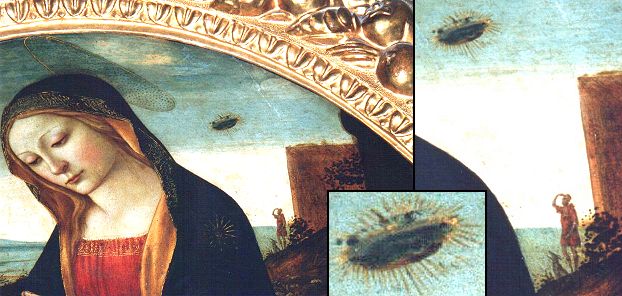  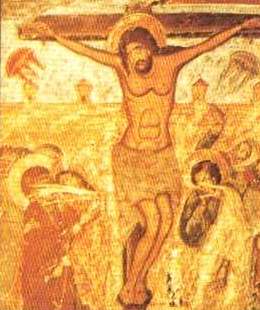 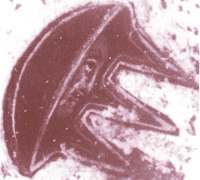  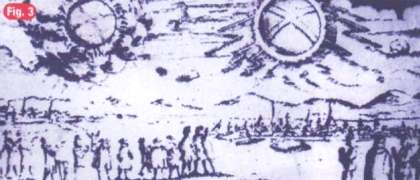 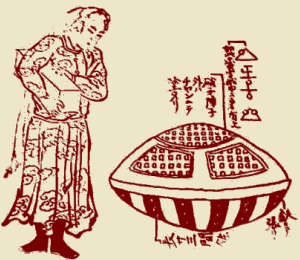 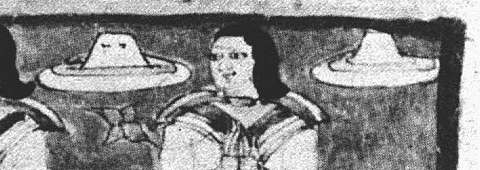 Ook raar, dat ze overal op de wereld UFO's schilderden, en overal dezelfde techniek hadden, aangezien er door heel europa pyramides staan. En de inca's, hoe kwamen die aan al het steen om die enorme gebouwen te maken. etc etc. Laatst gewijzigd op 08-03-2004 om 12:27. |
||
|
|
||
|
Citaat:
|
||
|
|
||
|
Citaat:
http://www.newadvent.org/cathen/05393a.htm Elohim (Sept., theos; Vulg., Deus). Elohim is the common name for God. It is a plural form, but "The usage of the language gives no support to the supposition that we have in the plural form Elohim, applied to the God of Israel, the remains of an early polytheism, or at least a combination with the higher spiritual beings" (Kautzsch). Grammarians call it a plural of majesty or rank, or of abstraction, or of magnitude (Gesenius, Grammatik, 27th ed., nn. 124 g, 132 h). The Ethiopic plural amlak has become a proper name of God. Hoffmann has pointed out an analogous plural elim in the Phoenician inscriptions (Ueber einige phon. Inschr., 1889, p. 17 sqq.), and Barton has shown that in the tablets from El-Amarna the plural form ilani replaces the singular more than forty times (Proceedings of the American Oriental Society, 21-23 April, 1892, pp. cxcvi-cxcix). Etymology Elohim has been explained as a plural form of Eloah or as plural derivative of El. Those who adhere to the former explanation do not agree as to the derivation of Eloah. There is no such verbal stem as alah in Hebrew; but the Arabist Fleischer, Franz Delitzsch, and others appeal to the Arabic aliha, meaning "to be filled with dread", "anxiously to seek refuge", so that ilah (eloah) would mean in the first place "dread", then the object of dread. Gen., xxi, 42, 53, where God is called "the fear of Isaac", Is., viii, 13, and Ps. lxxv, 12, appear to support this view. But the fact that aliha is probably not an independent verbal stem but only a denominative from ilah, signifying originally "possessed of God" (cf. enthousiazein, daimonan) renders the explanation more than precarious. There is no more probability in the contention of Ewald, Dillmann, and others that the verbal stem, alah means "to be mighty": and is to regarded as a by-form of the stem alah; that, therefore, Eloah grows out of alah as El springs from alah. Baethgen (Beitrage, 297) has pointed out that of the fifty-seven occurrences of Eloah forty-one belong to the Book of Job, and the others to late texts or poetic passages. Hence he agrees with Buhl in maintaining that the singular form Eloah came into existence only after the plural form Elohim had been long in common use; in this case, a singular was supplied for its pre-existent plural. But even admitting Elohim to be the prior form, its etymology has not thus far been satisfactorily explained. The ancient Jewish and the early ecclesiastical writers agree with many modern scholars in deriving Elohim from El, but there is a great difference of opinion as to the method of derivation. Nestle (Theol. Stud. aus Würt., 1882, pp. 243 sqq.) supposes that the plural has arisen by the insertion of an artificial h, like the Hebrew amahoth (maidens) from amah. Buhl (Gesenius Hebraisches Handworterbuch, 12th ed., 1895, pp. 41 sq.) considers Elohim as a sort of augmentative form of El; but in spite of their disagreement as to the method of derivation, these writers are one in supposing that in early Hebrew the singular of the word signifying God was El, and its plural form Elohim; and that only more recent times coined the singular form Eloah, thus giving Elohim a grammatically correct correspondent. Lagrange, however, maintains that Elohim and Eloah are derived collaterally and independently from El. The Use of the Word The Hebrews had three common names of God, El, Elohim, and Eloah; besides, they had the proper name Yahweh. Nestle is authority for the statement that Yahweh occurs about six thousand times in the Old Testament, while all the common names of God taken together do not occur half as often. The name Elohim is found 2570 times; Eloah, 57 times [41 in Job; 4 in Pss.; 4 in Dan.; 2 in Hab.; 2 in Canticle of Moses (Deut., xxxii); 1 in Prov., 1 in Is.; 1 in Par.; 1 in Neh. (II Esd.)]; El, 226 times (Elim, 9 times). Lagrange (Etudes sur les religions sémitiques, Paris, 1905, p. 71) infers from Gen., xlvi, 3 (the most mighty God of thy father), Ex., vi, 3 (by the name of God Almighty), and from the fact that El replaces Yah in proper names, the conclusion that El was at first a proper and personal name of God. Its great age may be shown from its general occurrence among all the Semitic races, and this in its turn may be illustrated by its presence in the proper names found in Gen., iv, 18; xxv, 13; xxxvi, 43. Elohim is not found among all the Semitic races; the Aramaeans alone seem to have had an analogous form. It has been suggested that the name Elohim must have been formed after the descendants of Shem had separated into distinct nations. Meaning of the Word If Elohim be regarded as derived from El, its original meaning would be "the strong one" according to Wellhausen's derivation of El, from ul (Skizzen, III, 169); or "the foremost one", according to Nöldeke's derivation of El from ul or il, "to be in front" (Sitzungsberichte der berlinischen Akademie der Wissenschaften, 1880, pp. 760 sqq.; 1882, pp. 1175 sqq.); or "the mighty one", according to Dillmann's derivation of El from alah or alay, "to be mighty" (On Genesis, I, 1); or, finally "He after whom one strives", "Who is the goal of all human aspiration and endeavour", "to whom one has recourse in distress or when one is in need of guidance", "to who one attaches oneself closely", coincidentibus interea bono et fine, according to the derivation of El from the preposition el, "to", advocated by La Place (cf. Lagarde, Uebersicht, etc., p. 167), Lagarde (op. cit., pp. 159 sqq.), Lagrange (Religions semitiques, pp. 79 sqq.), and others. A discussion of the arguments which militate for and against each of the foregoing derivations would lead us too far. If we have recourse to the use of the word Elohim in the study of its meaning, we find that in its proper sense it denotes either the true God or false gods, and metaphorically it is applied to judges, angels, and kings; and even accompanies other nouns, giving them a superlative meaning. The presence of the article, the singular construction of the word, and its context show with sufficient clearness whether it must be taken in its proper or its metaphorical sense, and what is its precise meaning in each case. Kautzsch (Encyclopaedia Biblica, III, 3324, n. 2) endeavours to do away with the metaphorical sense of Elohim. Instead of the rendering "judges" he suggests the translation "God", as witness of a lawsuit, as giver of decisions on points of law, or as dispenser of oracles; for the rendering "angels" he substitutes "the gods of the heathen", which, in later post-exilic times, fell to a lower rank. But this interpretation is not supported by solid proof. According to Renan (Histoire du peuple d'Israel, I, p. 30) the Semites believed that the world is surrounded, penetrated, and governed by the Elohim, myriads of active beings, analogous to the spirits of the savages, alive, but somehow inseparable from one another, not even distinguished by their proper names as the gods of the Aryans, so that they can be considered as a confused totality. Marti (Geschichte der israelitischen Religion, p. 26), too, finds in Elohim a trace of the original Semitic polydemonism; he maintains that the word signified the sum of the divine beings that inhabited any given place. Baethgen (op. cit., p. 287), F.C. Baur (Symbolik und Mythologie, I, 304), and Hellmuth-Zimmermann (Elohim, Berlin, 1900) make Elohim an expression of power, grandeur, and totality. Lagrange (op. cit., p. 78) urges against these views that even the Semitic races need distinct units before they have a sum, and distinct parts before that arrive at a totality. Moreover, the name El is prior to Elohim (op. cit., p. 77 sq.) and El is both a proper and a common name of God. Originally it was either a proper name and has become a common name, or it was a common name has become a proper name. In either case, El, and, therefore, also its derivative form Elohim, must have denoted the one true God. This inference becomes clear after a little reflection. If El was, at first, the proper name of a false god, it could not become the common name of a false god, it could not become the common name for deity any more than Jupiter or Juno could; and if it was, at first, the common name for deity, it could become the proper name only of that God who combined in him all the attributes of deity, who was the one true God. This does not imply that all the Semitic races had from the beginning a clear concept of God's unit and Divine attributes, though all had originally the Divine name El.
__________________
Bureaucracy is the death of any achievement.
|
||
|
|
||
|
Citaat:
Ik geloof dan ook niet zo zeer erin dat we het ooit te weten komen. Tenzij 1 van de voorspellingen van het 1 en ander uitkomen of wanneer we dood gaan.
__________________
Bureaucracy is the death of any achievement.
|
||
|
|
|
|
Ik denk eerlijk gezegd dat mensen er nooit achter zullen komen. Maar ik vind het eigenlijk helemaal geen bevredigend antwoord als zou blijken dat de mensheid afstamt van een andere bevolking op een andere planeet. Als er nu een ufootje zou landen, zou ik alsnog zeggen: leuk, maar waar komen jullie dan vandaan?
|
|
|
|
||
|
Citaat:
 Ja, inderdaad Ja, inderdaad  Wie heeft hen dan gecreeerd? Weer andere buitenaardse wezen? Maar waar komen die dan weer vandaan? etc. Wie heeft hen dan gecreeerd? Weer andere buitenaardse wezen? Maar waar komen die dan weer vandaan? etc.
__________________
Bureaucracy is the death of any achievement.
|
||
|
|
||
|
Citaat:
Laatst gewijzigd op 08-03-2004 om 14:52. |
||
|
|
||
|
Citaat:
__________________
Bureaucracy is the death of any achievement.
|
||
|
|
||
|
Citaat:
Ik geloof volledig in een wereld die oorspronkelijk uit RNA bestond en daarna over miljarden (!) jaren is geevolueerd tot wat het nu is. Ik ben er trouwens ook van overtuigd dat tenminste een deel van het materiaal voor het ontstaan van het leven uit de ruimte komt. Maar dan niet in de vorm van UFO's en zo, maar in de vorm van organische moleculen op kometen. Tussen 4.6 en 3.9 miljard jaar geleden is de aarde behoooooorlijk bestookt vanuit de ruimte. Recentelijk is het bewezen dat organische moleculen het neerstorten op aarde kunnen overleven. Verder is het al veel langer bekend dat uit simpele stoffen complexe organische moleculen kunnen ontstaan. Vele malen van puur toeval hebben een voorganger van het RNA gemaakt. DNA heeft een duidelijke selectieve voorsprong op RNA en is daarom op den duur dominant geworden. En dan is het slechts een kwestie van tijd voordat er complex leven ontstaat. Vanaf het DNA is er onomstotelijk bewijs uit het fossil record. Waarom zouden aliens ons op aarde neerzetten als bacterieen terwijl het ook als volgroeide mensen kan volgens jou theorie? Waarom 'werken' mensen hetzelfde als andere organismen op aarde als wij uit de ruimte komen? We gebruiken dezelfde eiwitten, dezelfde DNA-structuur, dezelfde cellen als ander complex leven. Waarom is de endosymbiose-theorie vrij onomstotelijk bewezen (theorie houdt in dat moderne cellen in het begin verschillende bacterien zijn geweest. De een at de ander, totdat ze erachter kwamen dat samenwerken beter is. Dit wordt onder andere ondersteund door het feit dat veel organellen in bij planten, dieren enz. allemaal hun eigen RNA hebben) Als aliens ons hier neergeplant hebben waarom hebben ze ons dan niet beter werkende mechanismen gegeven? Of ons genetisch dom gehouden zodat we hier ooit aan gaan twijfelen? Dom genoeg om hun aanwezigheid niet op te merken... Dom genoeg om geen tekeningen te maken. Doordat we 'ze' doorhebben is het 'experiment' toch aardig naar de kloten... Mij lijkt het nog geloofwaardiger dat ze ons ontdekt hebben nadat leven al was begonnen hier en dat ze ons in de 'gaten' zijn gaan houden. Ik vind jou versie van het verhaal te Star Trek/X-Files achtig... En tot slot: Ik denk dat je Koraans het best als Islamitisch kan omschrijven. Of Koraans bestaat weet ik niet. Laatst gewijzigd op 08-03-2004 om 18:18. |
||
|
|
||
|
Citaat:

__________________
Nu zal ik doden u beide, Elegast u ende uw paard. Ten zi dat gi ter vaart, Nederbeet optie moude: Zo mag uw ors t lijf behouden.
|
||
|
|
||
|
Citaat:
Met de dag ontdekken wetenschappers steeds meer bewijs dat de evolutie theorie pure onzin is. Als je nou eerst een verder dan 5 regeltjes leest en dan pas je conclusie trekt. |
||
| Advertentie |
|
|
|
|
||
|
Citaat:

__________________
In Memoriam: Matthew Shepard(1976-1998)-Wake up, meet reality! mccaine.blogspot.com|geengodengeenmeesters.blogspot.com
|
||
|
|
||
|
Citaat:

__________________
Nu zal ik doden u beide, Elegast u ende uw paard. Ten zi dat gi ter vaart, Nederbeet optie moude: Zo mag uw ors t lijf behouden.
|
||
|
|
||
|
Citaat:
 Ik denk eerder dat de gaten in de evolutietheorie opgevuld gaan worden. Maar het is altijd nog duizenden keer meer theorie en geloofwaardiger dan jou sf-fantasie... Kijk eens wat rationalistischer naar je argumenten. Ik denk eerder dat de gaten in de evolutietheorie opgevuld gaan worden. Maar het is altijd nog duizenden keer meer theorie en geloofwaardiger dan jou sf-fantasie... Kijk eens wat rationalistischer naar je argumenten. Het mag dan wel op tv zijn maar wat op tv komt is ook niet altijd objectief en correct. Lees nou eerst eens wat meer over de argumenten voor en tegen evolutie en ga dan nog eens wat zeggen over of hij wel of niet klopt. |
||
|
|
||
|
Citaat:
|
||
|
|
|
|
Bijna alle gaten in de evolutietheorie zijn allang opgevuld. Sommige tientallen jaren geleden al. Alleen weet men het gewoon niet of wil men het accepteren. Los van het feit of de evolutietheorie echt waar is moet je nu gewoon eenmaal accepteren dat de evolutie veruit de beste theorie is die we hebben. Er zijn maar weinig theorieen met zo weinig serieuze wetenschappelijke concurrentie. Of het nu geloof of ethiek is, mensen geloven liever niet in de evolutietheorie. Dus men neemt hem niet aan.
|
|
|
|
||
|
Citaat:
And on the eight day man created god.  ps: no offence ment |
||
|
|
||
|
Citaat:
|
||
|
|
|
|
Ik hoor alleen maar mensen over punt 2 en 3, maar what about puntje 1? Die is toch de meest aannemelijke? En ook al zouden wij gekloond zijn door buitenaardse wezens, hoe zijn die dan ontstaan? Als die ook weer gekloond zijn, en hun kloon-voorouders ook, enz. enz. dan moet er nog steeds ergens 'toevallig' leven zijn ontstaan. Er moet een groep wezens zijn die het begin hebben gemaakt met dat klonen, en dus 'zomaar' ontstaan zijn. En aangezien ik niet in god geloof, brengt dat me toch weer bij punt 1. Die moet hoe dan ook waar zijn.
__________________
Omdat zelfs van de meest vicieuze cirkel het oppervlak ?r² is.
|
|
|
|
||
|
Citaat:
__________________
If the facts don't fit the theory, change the facts.
|
||
|
|
||
|
Citaat:
__________________
In Memoriam: Matthew Shepard(1976-1998)-Wake up, meet reality! mccaine.blogspot.com|geengodengeenmeesters.blogspot.com
|
||
|
|
||
|
Citaat:
laat ook maar
__________________
"In this house, we OBEY the laws of thermodynamics!" - Homer Simpson
|
||
|
|
||
|
Citaat:
|
||
 |
«
Vorige topic
|
Volgende topic
»
|
|
 Soortgelijke topics
Soortgelijke topics
|
||||
| Forum | Topic | Reacties | Laatste bericht | |
| Levensbeschouwing & Filosofie |
Waarom geloof jij? DBZ | 88 | 07-08-2009 18:32 | |
| Levensbeschouwing & Filosofie |
Andries Knevel: creationisme-> intelligent design-> theïstisch evolutionist Hernuel Fan | 32 | 25-02-2009 03:07 | |
| Levensbeschouwing & Filosofie |
Vrije wil in religie? akumabito | 39 | 13-10-2005 20:36 | |
| Levensbeschouwing & Filosofie |
Wat vinden christenen en joden van de profeet Mohammed? En wat vinden joden van jezus Donny must die | 117 | 24-01-2005 22:50 | |
| Levensbeschouwing & Filosofie |
Wie is de grootste massamoordenaar ooit? Bart Klink | 195 | 22-08-2004 00:06 | |
| Levensbeschouwing & Filosofie |
Christendom wat tegen homoseksuele?? 0o-meijsje-o0 | 193 | 01-08-2004 00:56 | |
Alle tijden zijn GMT +1. Het is nu 12:22.





 denk nou toch na man...
denk nou toch na man...







 Adverteren
Adverteren